TheXPlace portfolio: How Game Designers, Programmers and other professionals in the Games Industry can stand out
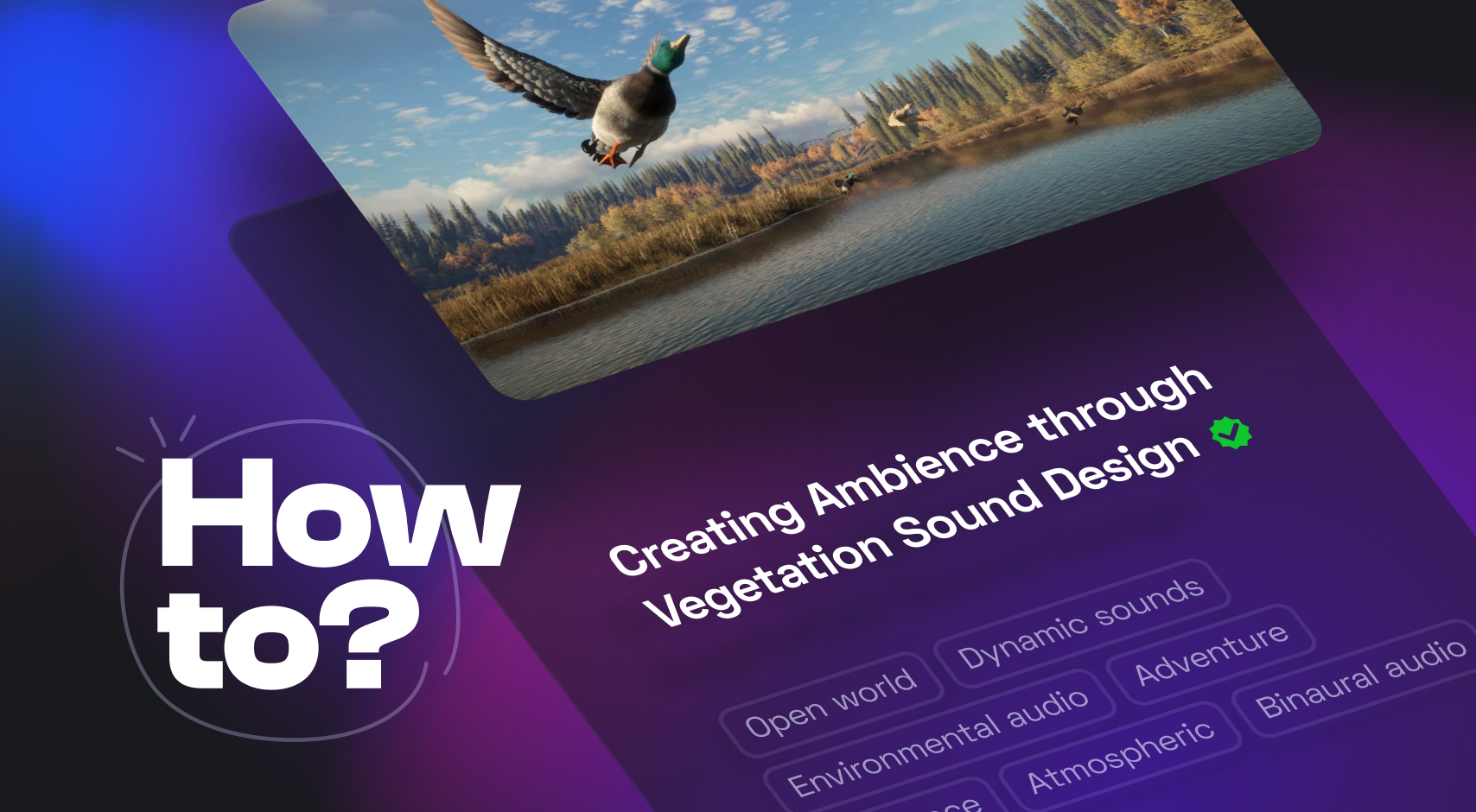
Who should have a portfolio?
A portfolio is one of the most powerful tools to showcase your skills and experience - and it is not exclusively for artists! Game designers, programmers, producers, monetization specialists, and other professionals in the games industry can benefit from having a portfolio that represents their full body of work and demonstrates their abilities to potential employers or clients.
A portfolio on TheXPlace can include examples of previous professional work, like design documents, gameplay mechanics, code samples and project summaries, accompanied by testimonials and references from colleagues, employers or past clients who saw you in action.
Having a portfolio can help you stand out in a competitive industry and can be a valuable tool for advancing your careers.
Make sure your portfolio packs a punch!
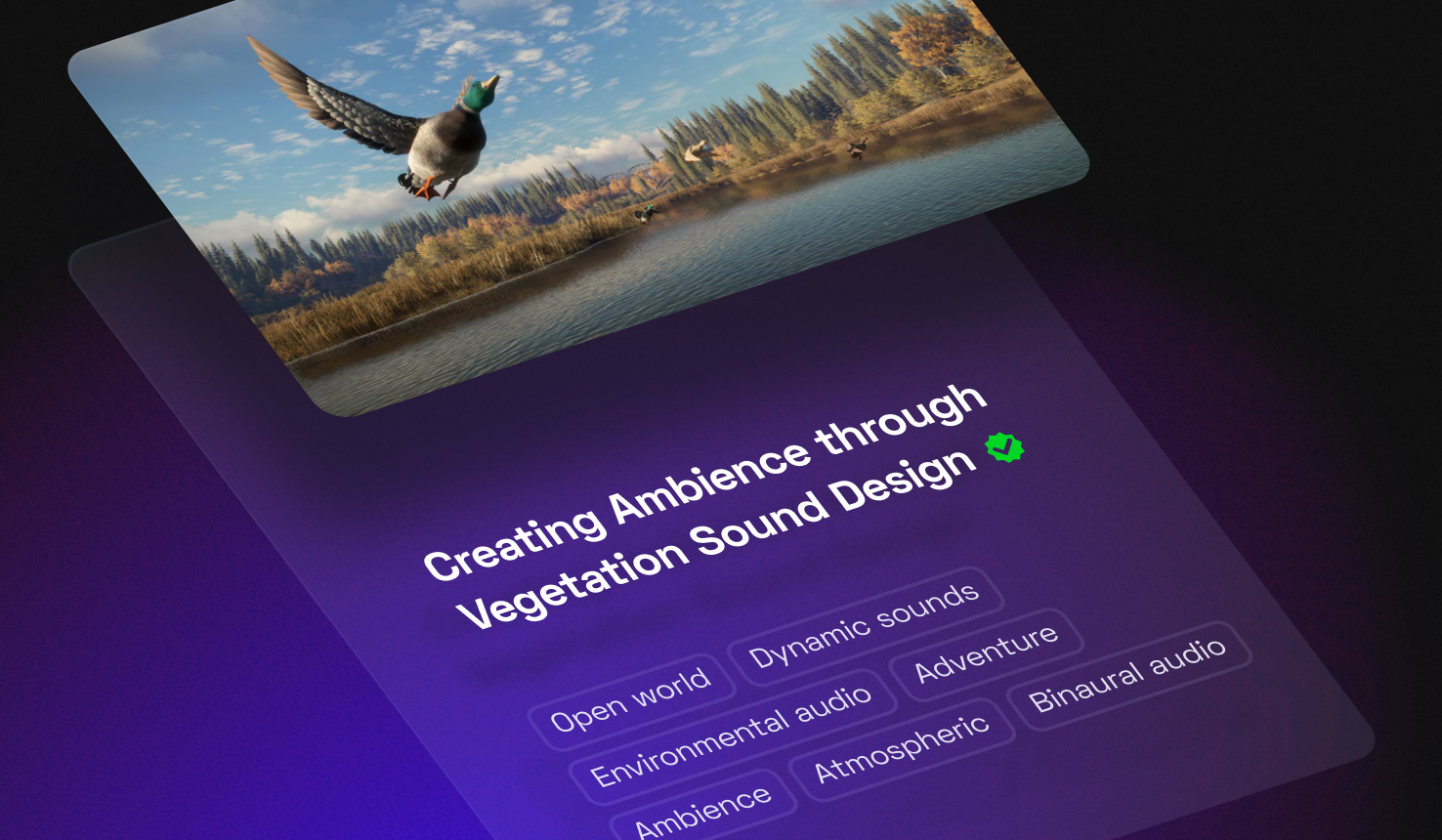
When choosing a theme for your portfolio page, it's important to consider how best to showcase your full body of work. Rather than showcasing individual assets, such as screenshots or game assets, present your portfolio in the context of your specific contribution to a game. For example, you could present your work process on a specific game, like "Game mechanics design for GAME TITLE." There you might show design documents, game progress through development, screenshots of tools that you used and how you used them, behind the scenes images and more. This allows visitors to see the breadth of your work and understand your specific contribution to the overall project. Similarly, instead of showcasing work for individual games, you could present your work in the context of a specific studio or company, such as "Project management for multiple mobile games at Playtika." This can help demonstrate your ability to work on multiple projects and your experience in different roles.
Naming your portfolio page
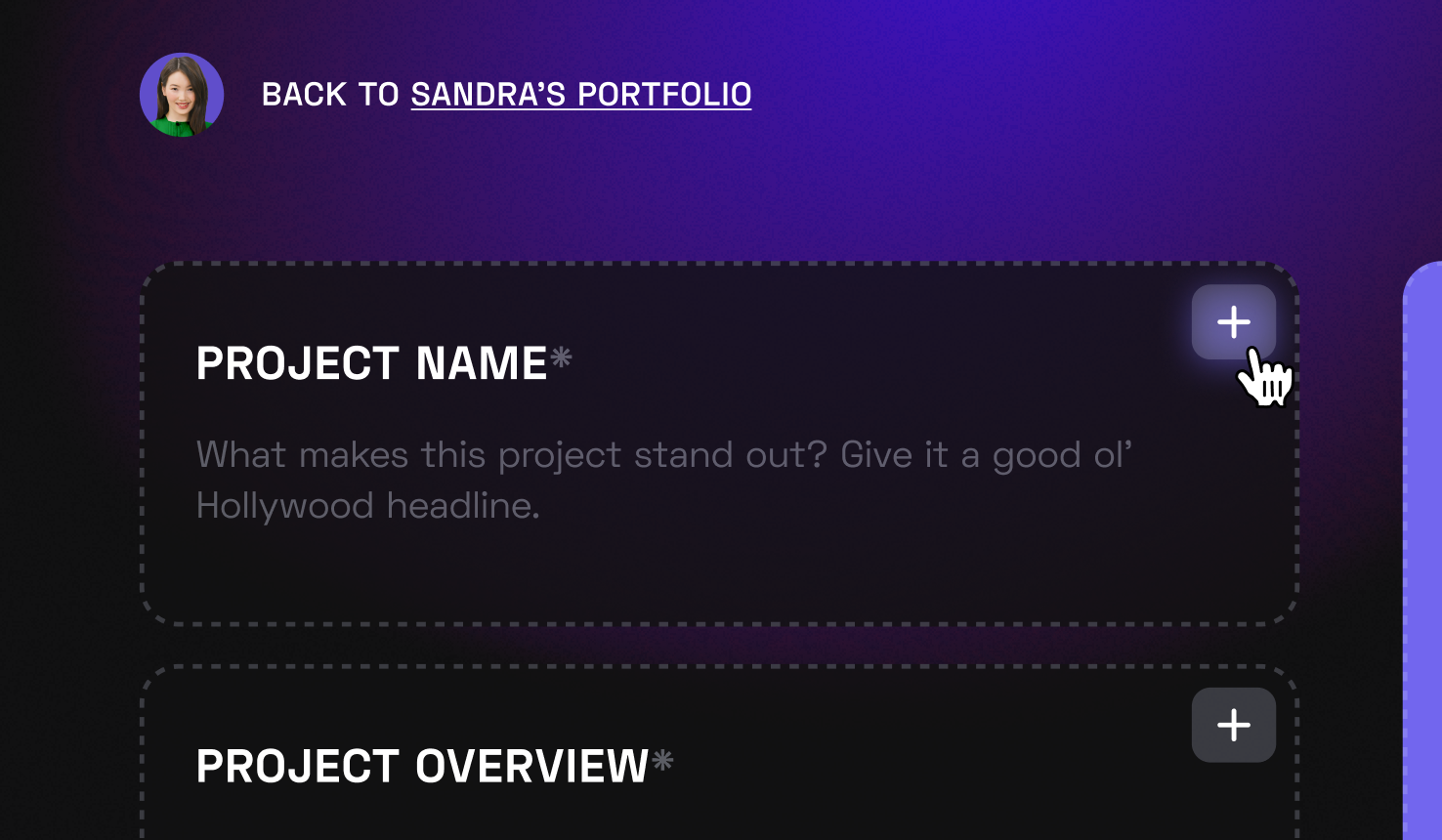
Choosing a name for your portfolio page is an important consideration. It's a good idea to avoid naming it simply with the game’s name, instead try and name it in a more meaningful way that reflects your area of expertise. For example, if you're a programmer, you could choose a name like “Gameplay programming for GAME TITLE”.
If you have a specific focus on a certain platform, you could include that in the name, such as “5 Years of Mobile Game Programming” or “Creating VR Games outside the box”.
The overview section
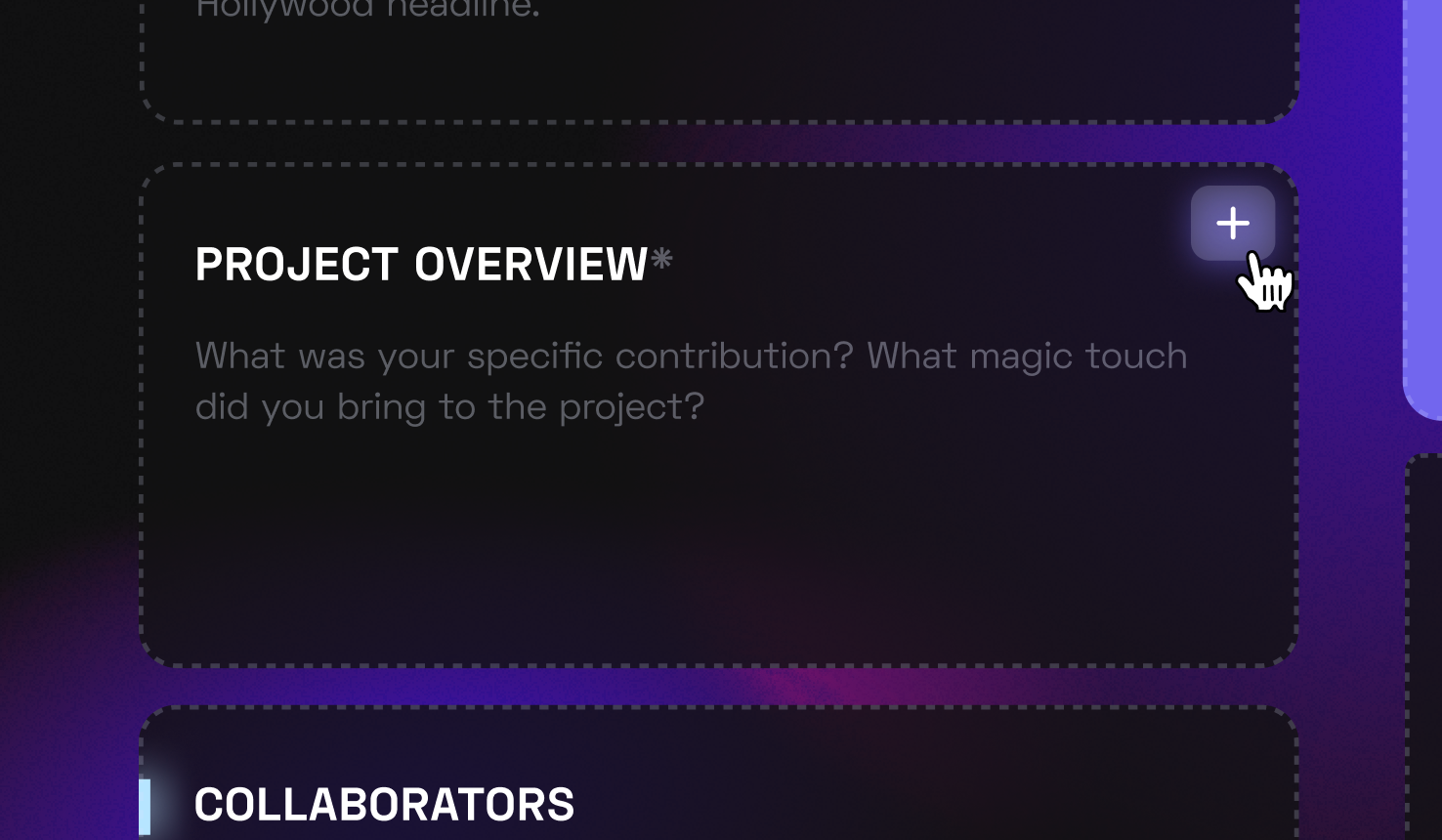
In the overview section of your portfolio, it's important to focus on your contributions and accomplishments, rather than the project itself. Describe the specific value that you bring to a project and see how your skills and experience can benefit future projects. Instead of describing the project as a whole, you could highlight the specific features you designed, the problems that you solved, or the challenges you overcame. This will demonstrate your ability to create solutions and your think critically.
We also recommend including metrics or statistics that demonstrate the impact of your work, such as increased user engagement, improved performance, or reduced development time.
TheXPlace’s rich professional taxonomy
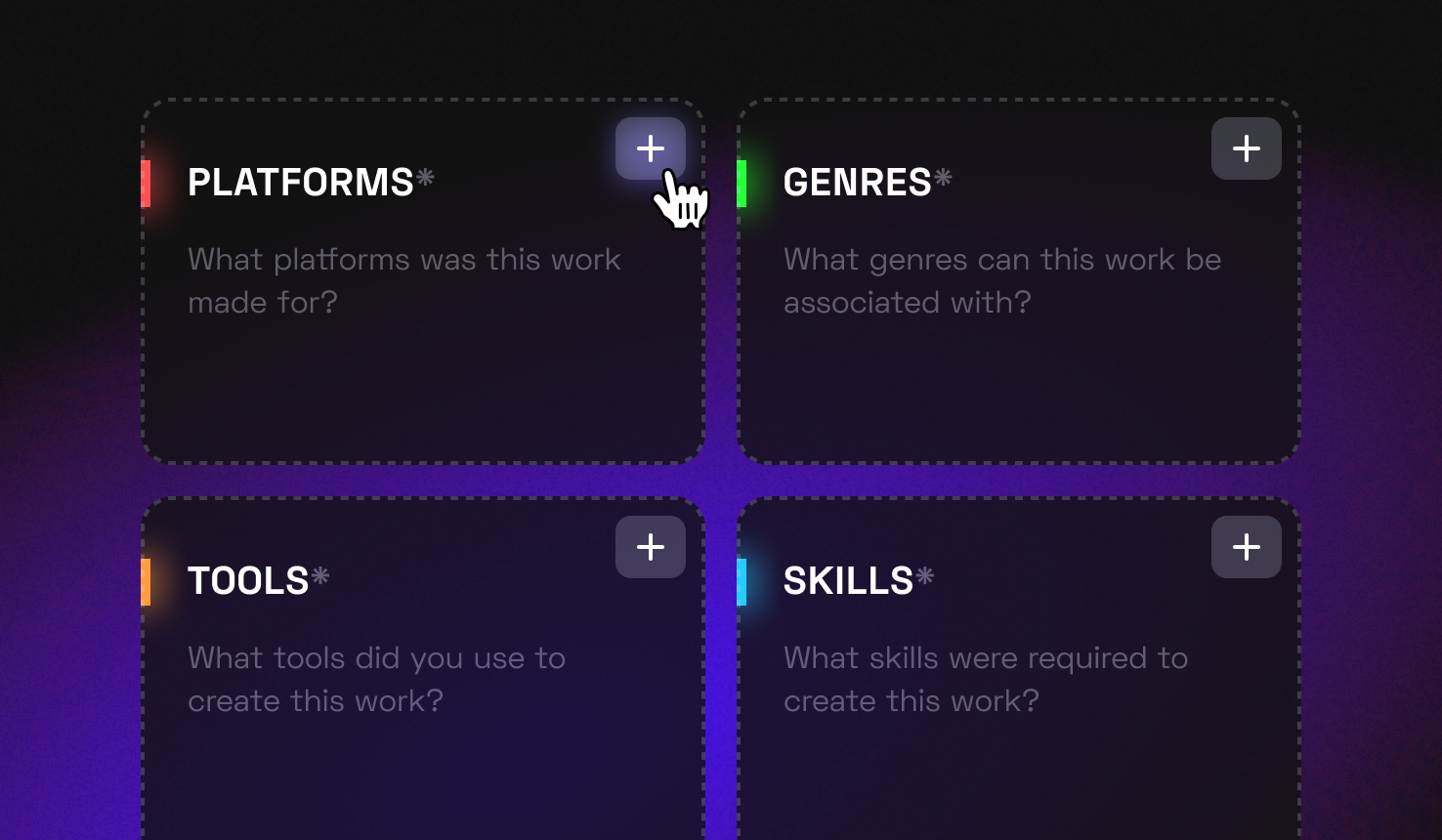
TheXPlace provides a rich taxonomy for the professionals in the games industry and other related fields, which allows users to easily categorize and tag their work according to skills, tools, platforms, genres, and other relevant information. This feature can be extremely valuable for getting discovered by potential employers or clients who are searching for professionals with specific skills or experience.
By utilizing the taxonomy, you can tag your work according to the specific tools and technologies you used, the platforms you developed for, the genres of the games you worked on, and the skills you used in the process. This feature can help increase the visibility of your work and your chances of getting discovered.
Project Video
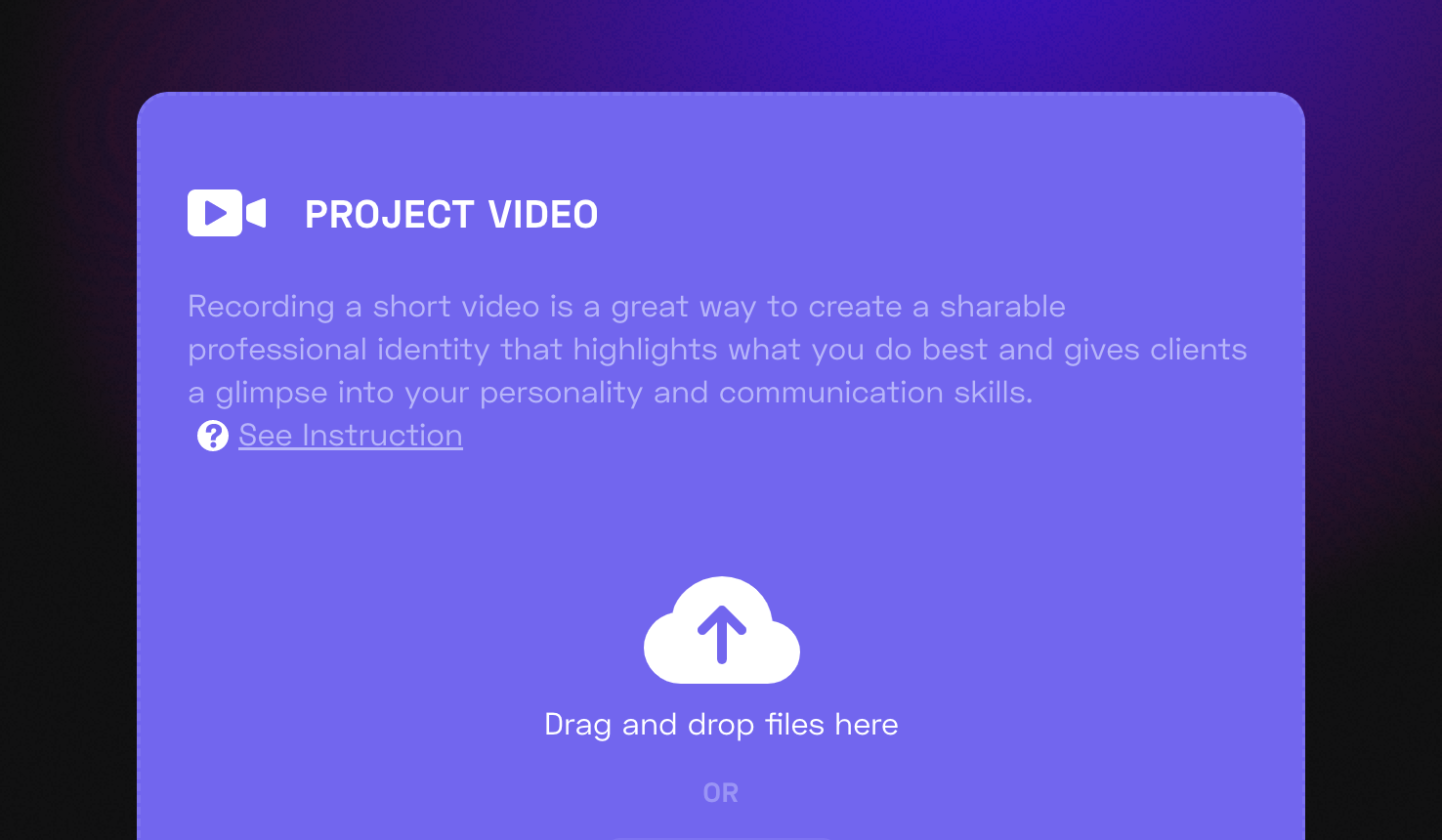
We recommend adding a project video as an additional feature on your portfolio to demonstrate your communication skills and give potential employers or clients a more personal look at your work. In the video, talk about your process and contribution to a specific project. This will give potential employers or clients a glimpse into how you approach problem-solving and how you work within a team.
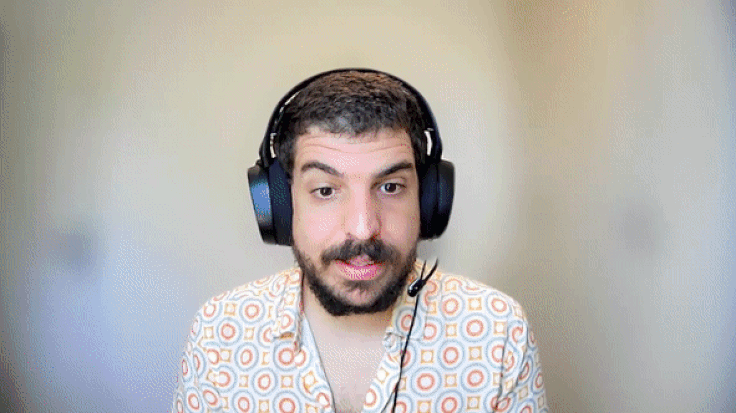
You can also talk about the challenges you encountered, highlight accomplishments that make you proud, and explain how you made an impact on the project. The video can include footage of the final product, screenshots, or concept art to provide context and help viewers visualize your work.
Choose the correct assets
In many portfolios, people upload only final results and finished assets. We believe showcasing behind-the-scenes and process assets alongside final results in your portfolio is incredibly valuable. This gives visitors a deeper understanding of your process and the interations you went through to create the final product.
For example, if you're a UI/UX designer, you could include idea boards, concept art, and wireframes alongside screenshots or videos of the final game. If you're a programmer, you could include code snippets, flowcharts, and debugging logs alongside the final gifs of gameplay. This transparency provides a realistic look into how you work, how you think, and how you adapt to challenges. It also demonstrates your attention to detail, your ability to work through problems, and your willingness to be transparent about your work.
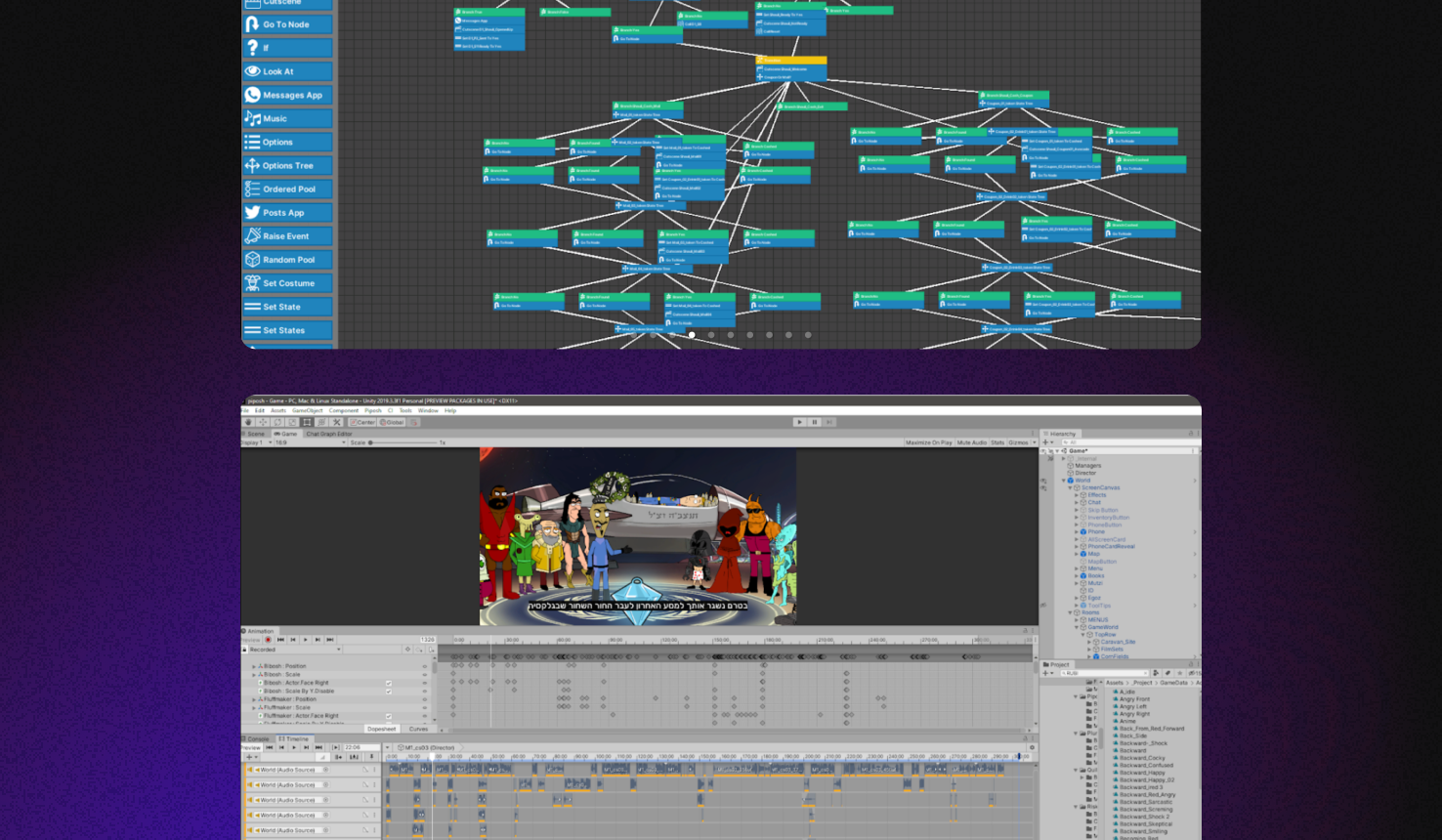
It's also important to provide clear and concise descriptions of these assets. You can include a brief overview of the design document, concept art or wireframe, explaining the goal of the design, the problem it solves, or the feature it implements. Similarly, for code snippets, flowcharts, or debugging logs, you could include a short explanation of the problem that was being solved, the approach you took, and the result achieved.
The descriptions should be clear and easy to understand, even for someone who may not have a lot of technical knowledge in your field. It's also a good idea to include any relevant metrics or statistics, such as the number of lines of code, the speed of the algorithm, or the number of users who tested the feature.
Claim credits for your work on games and link them to the portfolio!
TheXPlace allows users to claim credits for their work by adding collaborators, who can confirm your contributions and accomplishments. This is a valuable feature that can help build a trusted professional network and gain credit for work on games that are not always credited. Collaborators can include your peers, supervisors, clients and others who have seen you in action and can confirm your skills and capabilities.
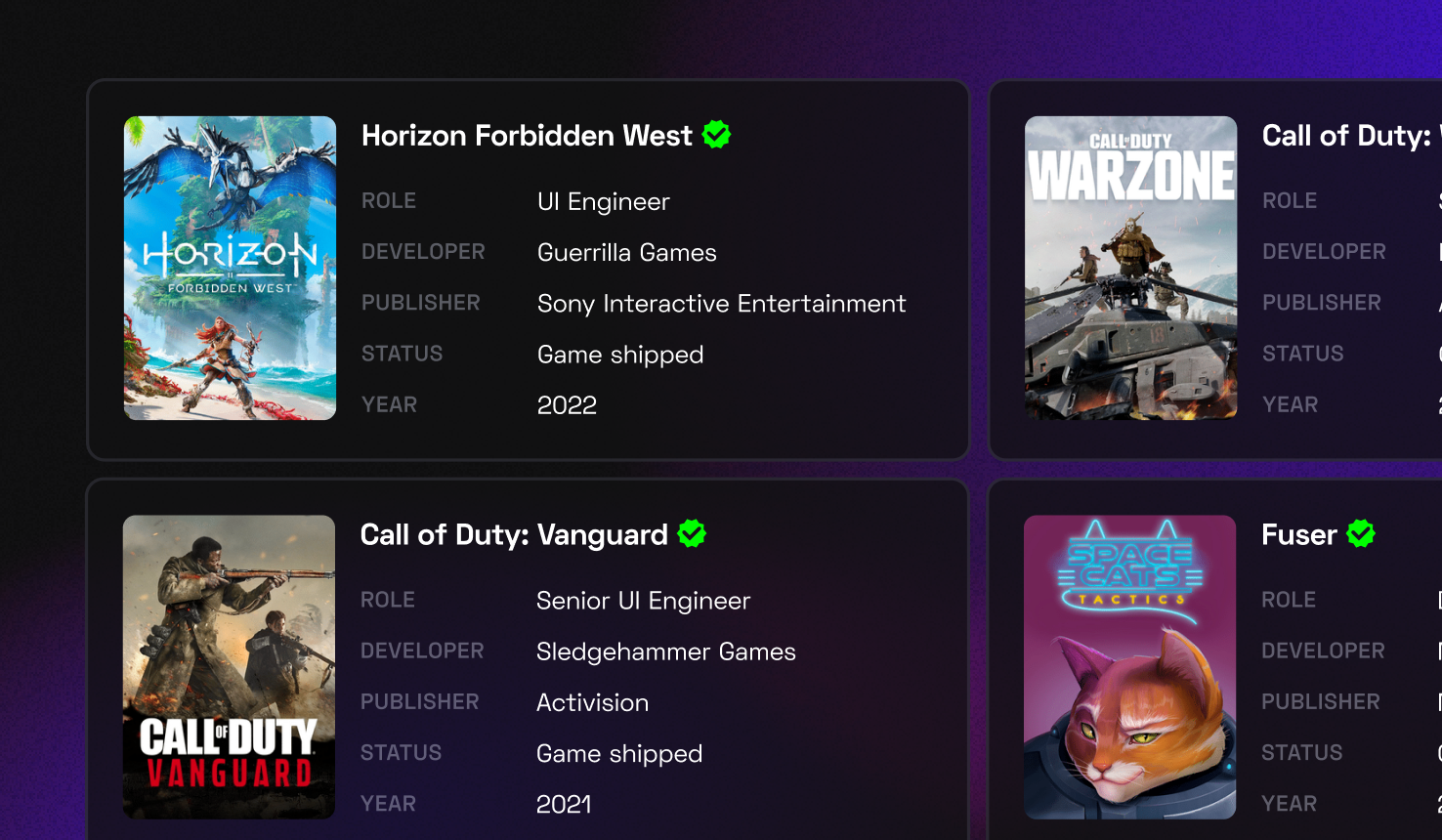
Additionally, by building a professional network, you can expand your reach and access to new opportunities and collaborators. The more collaborations and references you have, the more opportunities you can have to showcase your work and expand your professional network.

